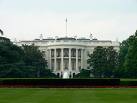Tuesday, May 19, 2009
Thursday, May 7, 2009
Correspondence
Mimi of California asks:
I chose the psychological angle to explain why non-believers (and even believers) do not constantly cower in fear of the supposed afterlife BBQ:
I am amazed that so many people take God and Hell so lightly. CASE, what is the reason for this?
I chose the psychological angle to explain why non-believers (and even believers) do not constantly cower in fear of the supposed afterlife BBQ:
The reason is psychological and the same reason that theists come to fear death, even though they assume they are "saved".
The human brain has two sources of information, logos (logic, reality) and mythos (fantasy, imagination). These sources appear to be identical to the conscious mind, however, the subconscious retains some understanding that:
1. Logos can be trusted, in this way, we know that if we jump off a building, we will fall. There is no fear that we will not fall.
2. Mythos is untrustworthy, in this way, we know that although we think we are good looking, we have doubts about our personal attributes when we ask a girl on a date.
Similarly, if we are bungee jumping for the first time, our expected experience is only imagined (mythos) and we have doubt or fear about not stopping the fall in the face of our knowledge (logos) of gravity.
Because the brain knows that religious activity is mythos (fantasy and imagination), it does not create the same fear effect as if we were standing on a precipice over a ravine. That is, essentially, the reason why people take God and Hell so lightly.
However, there are many situations where the fear created appears to be logos deceptively. For instance, a child that is beaten, berated, socially ostracised or suffers some other coercion if they disagree with the Bible will naturally form the rule that disbelief brings about greater fear than professing belief and thus, will not tend to treat the matter lightly. Of course, this is a strong reason behind the use of peer groups in churches, particularly, youth groups. The sad conclusion, however, is that these children live in a world where the only alternative on any religious issue is fear, which is damaging to the psyche and potentially destructive to the life of the child.
Need say no more
We know there is no God in the same way that we know there are no square triangles.
Assume: the definition of God is an intelligent being who decides to begin the universe, including time.
A decision is a transition from indifference to will. Such transition may only take place within time. Thus, we ask the question when did God make the decision to begin time, before, after or during the actual commencement of time:
1. Since all decisions require time to already be in effect, God cannot make the decision until time has already commenced in operation and accordingly, he cannot make the decision before or during the actual commencement of time;
2. Since time was already in existence after time commenced, God cannot be said to create it.
Thus, the definition of God as presented CANNOT exist because, like the square triangle, the definition CANNOT be show to exist in reality and thus, there CANNOT be a God.
However, this proof only shows that an intelligent being could not create the universe. It does not prevent the universe being the result of natural causes, something without decision making ability or chosen will. Accordingly, as far as I see it and to the extent of the validity of the argument, which I cannot flaw myself, the argument about the existence of God is now over.
Assume: the definition of God is an intelligent being who decides to begin the universe, including time.
A decision is a transition from indifference to will. Such transition may only take place within time. Thus, we ask the question when did God make the decision to begin time, before, after or during the actual commencement of time:
1. Since all decisions require time to already be in effect, God cannot make the decision until time has already commenced in operation and accordingly, he cannot make the decision before or during the actual commencement of time;
2. Since time was already in existence after time commenced, God cannot be said to create it.
Thus, the definition of God as presented CANNOT exist because, like the square triangle, the definition CANNOT be show to exist in reality and thus, there CANNOT be a God.
However, this proof only shows that an intelligent being could not create the universe. It does not prevent the universe being the result of natural causes, something without decision making ability or chosen will. Accordingly, as far as I see it and to the extent of the validity of the argument, which I cannot flaw myself, the argument about the existence of God is now over.
Subscribe to:
Comments (Atom)









